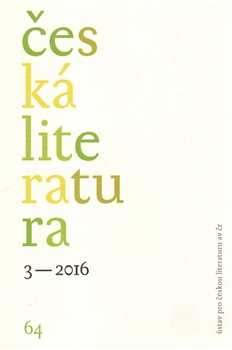Transformace žánru robinzonády v povídce Josefa a Karla Čapkových „Ostrov“ (1912)
Transformation of the Robinsonade genre in Josef and Karel Čapek’s short story The Island (1912)
Author(s): Ute MarggraffContributor(s): Jitka Komendová (Translator)
Subject(s): Language and Literature Studies, Studies of Literature, Czech Literature
Published by: AV ČR - Akademie věd České republiky - Ústav pro českou literaturu
Keywords: Čapek Josef; Čapek Karel; Gauguin Paul; Hofman Vlastislav; Lotman Jurij; Group of visual arts; English-Czech literary transfer; intertextuality; intermediality; castaway story; dystopia
Summary/Abstract: While the lives and works of brothers Josef and Karel Capek have been investigated rather well over the past century, one of their first prose texts under the name of Ostrov, written in 1912, has been paid very little attention to this day. Created during the time leading up to the First World War, when European literature turned from Symbolism and Impressionism to Avantgarde with schools like Expressionism and Cubism, the narrative pursues the myth of the self-made-man, founded by Defoe in modernity, in an inverted way. The brothers provided their text with subliminal allusions to the fate of artist Gauguin, changing the space-time scheme of the genre’s paradigm. Unlike Defoe, by doing so they also assessed not only the contrast between mankind’s self-alienated civilisation of a Western European nature and the longing for a non-alienated existence in an Arcadian island world recalling ‘locus amoenus’, but also used it for their own aesthetic and historic self-reflection.
Journal: Česká literatura
- Issue Year: 64/2016
- Issue No: 3
- Page Range: 372-391
- Page Count: 20
- Language: Czech

